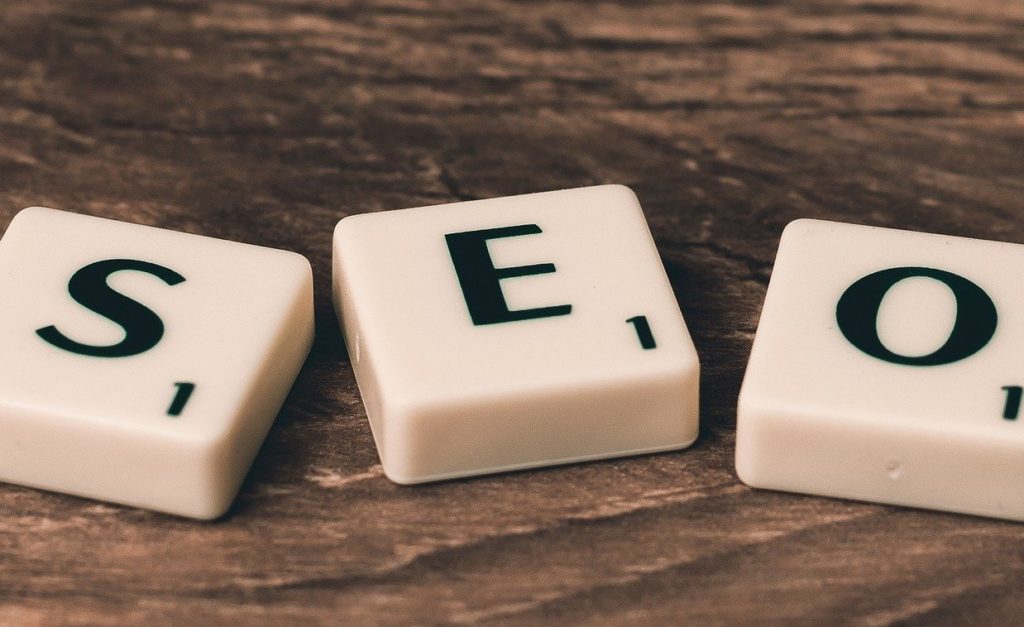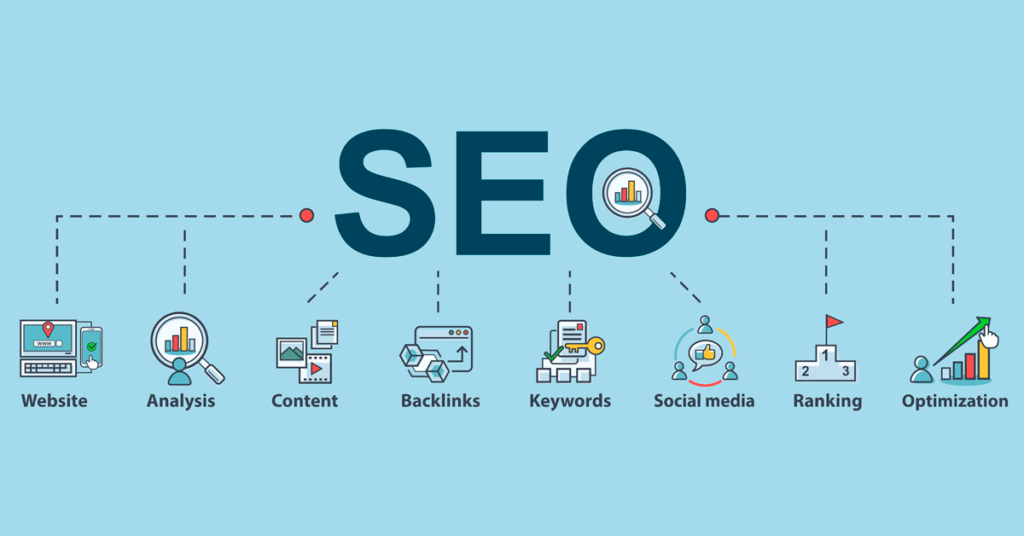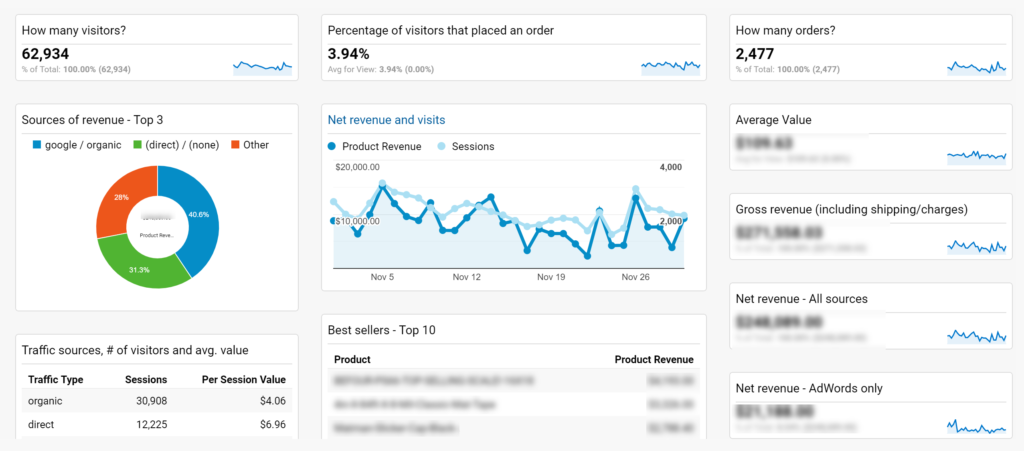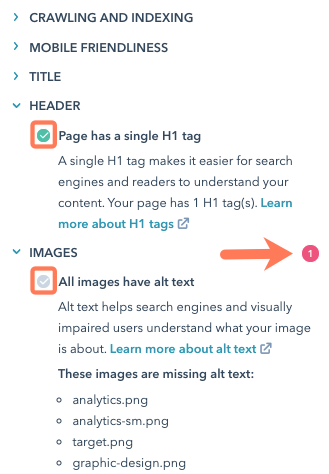What is SEO and why is it important for your business.
Posted by James, 15 October 2021 (6 minute read)

If you have a business website, you’ve probably heard the term SEO. But what is SEO? And why is it so important for your business? Well in this week’s JW’s Thoughts of a Copywriter, I’m going to talk all about SEO and why it’s such a great way to convert leads, drive up click-through-rates and – most importantly – sell your products or services.
It’ll probably come as no surprise that Google is the world’s most visited website. Every day, there are 5.6 billion searches on Google, making it easily one of the best marketing tools available. This means it’s really important to get your business website near the top of Google’s search engine ranking pages (or SERPs). But how do you do it? That’s where SEO comes in.
What is SEO?
SEO stands for ‘Search Engine Optimization’. And it essentially refers to the strategies you can use to boost your website’s chance of ranking more highly on Google’s search engine results pages.
If you have a business website as a means of advertising your products or services – or if you want to use the internet to sell them – SEO is absolutely vital. This is because 71% of all searchers on Google only look at the first page of results. So if your website doesn’t rank highly enough to appear on at least the first 2 results pages, it may as well not exist.

Why is SEO so valuable?
SEO is a valuable resource to any online business. It basically helps push your website to the top of the rankings and means you’re much more likely to see increased traffic, higher conversions, more enquiries and improved sales.
And because SEO is so valuable, there are many providers out there offering SEO services. For a fee (either one-off or monthly), they’ll ensure that your website ranks highly and performs well for a range of the most used search terms on Google.
But if you’re just getting started and don’t have the money to pay for these services, you can at least make a start on optimizing your business website yourself (and for free). Read on to find out how!
SEO basics
If you have a large website or run a business that’s primarily based online, you’ll probably need to employ the services of an SEO provider. But if you’re smaller and have only 10-15 webpages to optimize, there are a few ways you can begin to make changes to your site and boost its Google ranking.
NB: The techniques below refer to what’s known as ‘organic SEO’. You can of course pay to advertise on Google, which is called ‘pay-per-click advertising (PPC)’. While PPC strategies often provide short-term gains, organic SEO is far more effective in the medium and long term. Remember too that an organic SEO campaign usually takes at least a few months for you to start seeing results.
1. Use Google Analytics
Google Analytics is a basic tool to help you with SEO and marketing. If you have a Google account (which is free to set up), you can get Google Analytics without paying a penny. And once you’re up and running, you can then track your website’s performance and collect vital visitor information. This includes how users behave on your website (e.g. how long they take to make a purchase) and what pages they visit.

You can also use Google Analytics to start better understanding how to optimize your website and retain visitors. Google’s search algorithms always rank websites with a low ‘bounce rate’ more highly. Your website’s ‘bounce rate’ is based on the percentage of users who visit a page and then click through to other pages on your site in the same session. So if they only visit one page and then leave, your ‘bounce rate’ will be high – if they visit multiple pages in the same session, it’ll be much lower.
This means you want users to click on as many pages of your website as possible and for as long as possible in one ‘visit’. There are a few tricks you can employ to help with this: simple ones include adding images, using links to make your website easy to navigate and embedding video to ensure users spend longer on particular pages.
2. Optimize the pages of your website

Once you know the kind of things potential customers are searching for on Google, you can better optimize pages to help the search engine index your website. One thing you may already know about is ‘keyword optimization’. This is the process of embedding key search terms onto pages of your website to help Google rank it more easily.
For example, if you own a flower business, a key search term potential visitors might use is ‘flowers for mothers day’ (the lack of apostrophe and capital letters is deliberate – most people don’t bother with such things on Google). It’s therefore important to include this search term on appropriate pages of your website (e.g. a ‘flowers for special occasions’ page).
Keywords also need to be included in website URLs (the address you type in to visit the page), header tags (headings), meta titles (title of the page) and meta descriptions (that bit of writing you see below an entry on a Google search).
3. Link building
Google was originally set up to rank websites by the number of quality links they had to and from other websites. Nowadays, the search engine is a little more sophisticated, but adding and getting links from respected websites is still a vital way to optimize your own.
One way of starting this process is linking to blogs or other websites within your industry or sector. Building relationships with other parts of your industry then means you’re more likely to get a ‘backlink’ to your site and improve your search engine ranking.
4. Add fresh, regular content
Google really likes websites that regularly update and add content. In a previous post, I talked about how setting up a blog was a great way of meeting this SEO requirement.
Google equally likes content that’s well written and structured in a clear way (short paragraphs, headings and images to break up the words, etc.).
Fresh content is also an effective way of adding keywords or search terms to your website. But beware of what’s called ‘overstuffing’. Google is clever enough to tell when you’re just arbitrarily including key search terms for the sake of it. If the search engine algorithm doesn’t like what it sees, you’ll be penalised.

5. Optimize for a range of devices (especially phones)
Nearly 60% of Google searches worldwide are performed on mobile phones. This means you’re going to want to optimize your business website for phones, tablets and desktops at the same time. Many good content management systems (CMS) allow you to preview what each page of your website looks like on different devices. And it’s always worth checking, because little errors in formatting not only affect your Google ranking – they’re also a real turn off for visitors!
I hope you find the above helpful when it comes to answering questions like ‘what is SEO’ and ‘why is it so important for my business’. If so, comment below, tell me on Twitter (@JWCopywriting) or send me a message on Facebook.
In three weeks, I’ll be looking at newsletters and considering why they’re such a powerful marketing tool.
Until then,
JW
